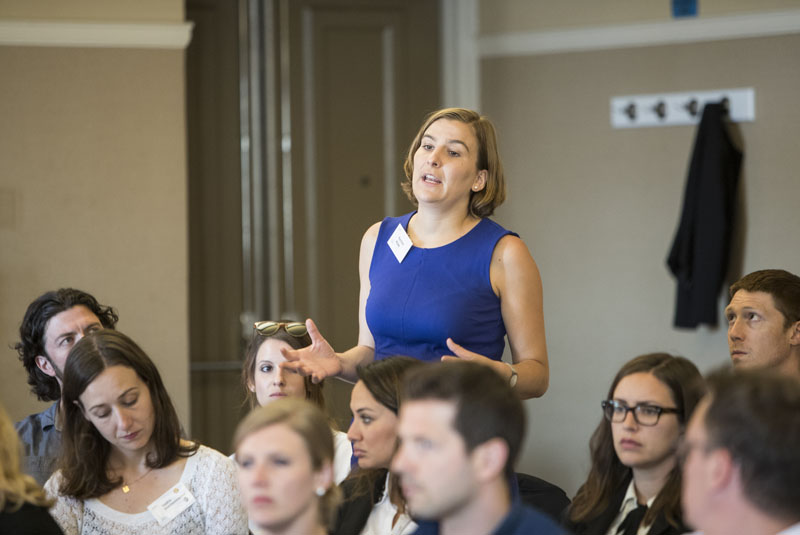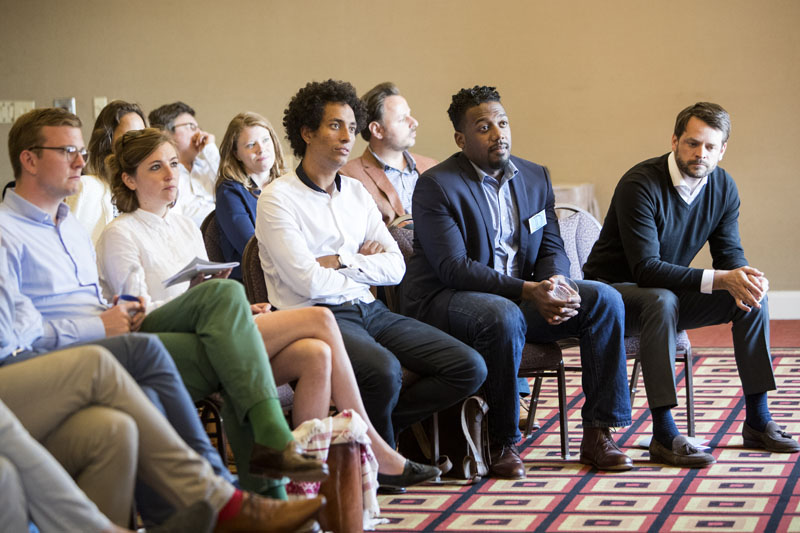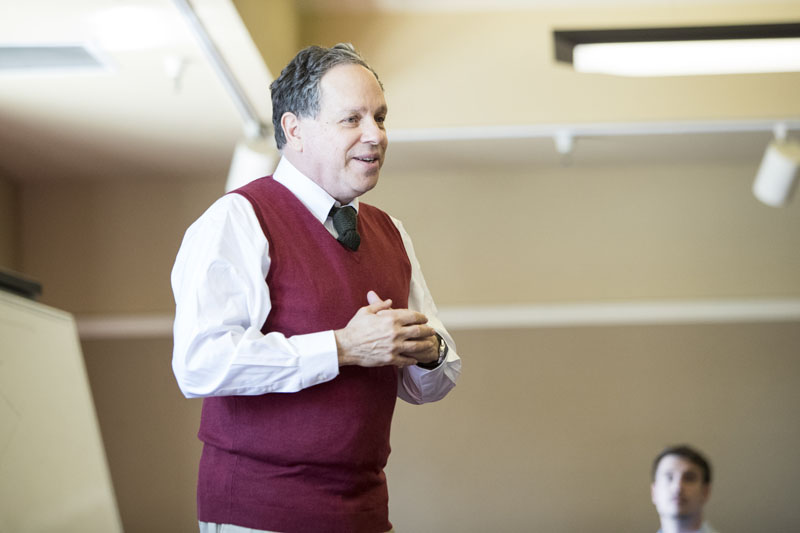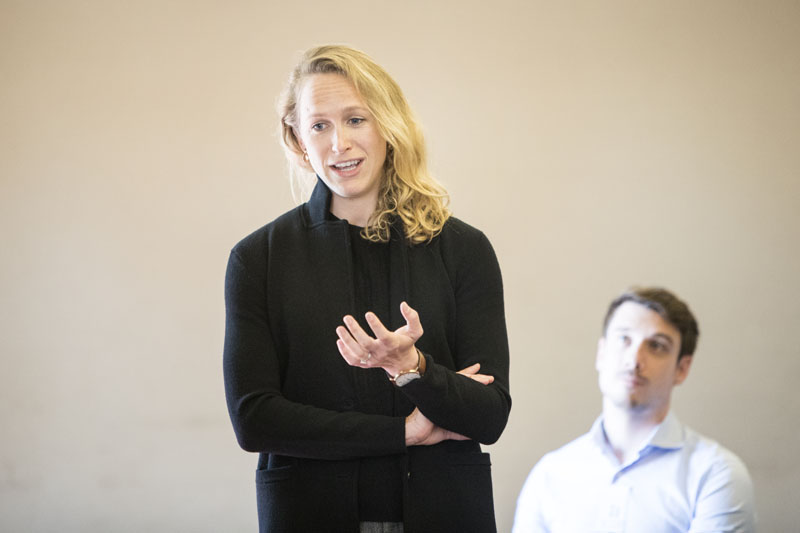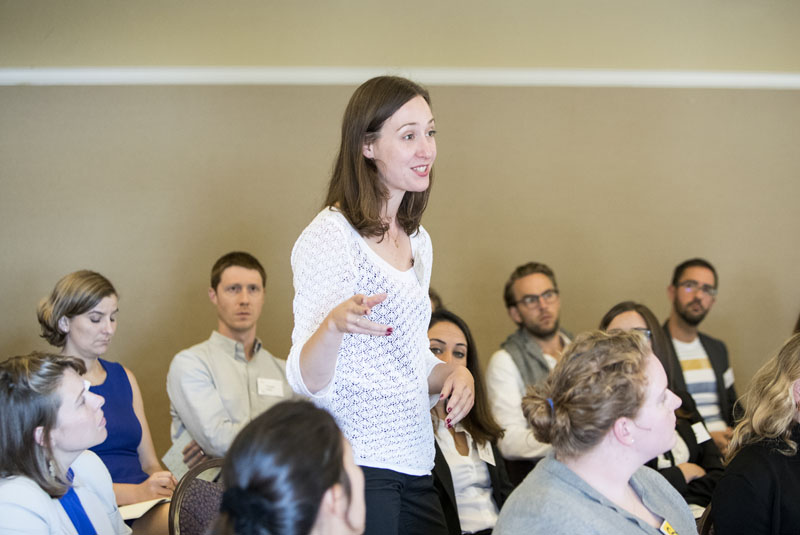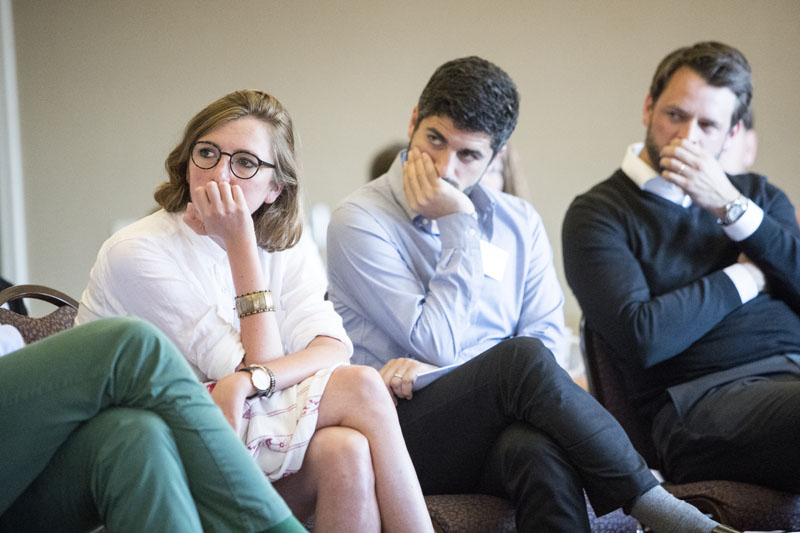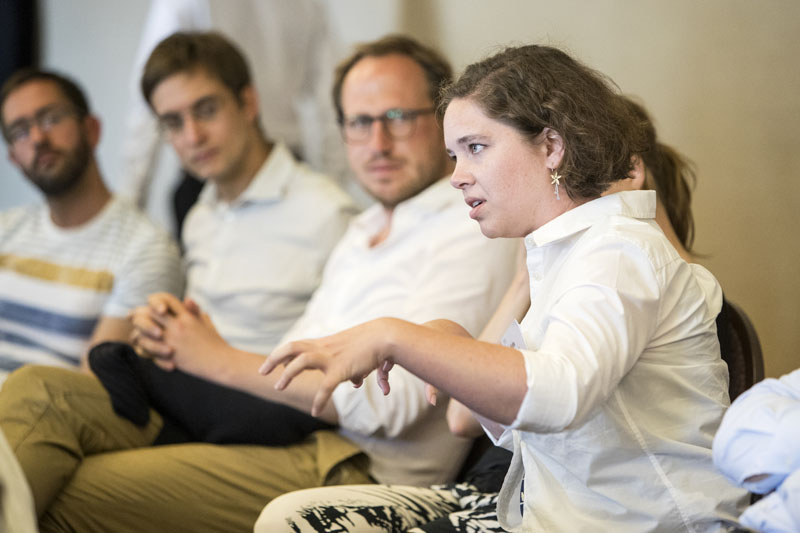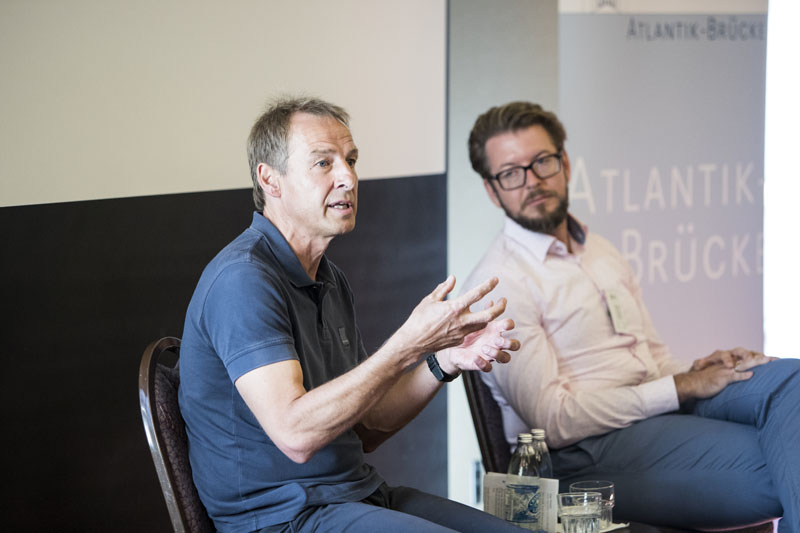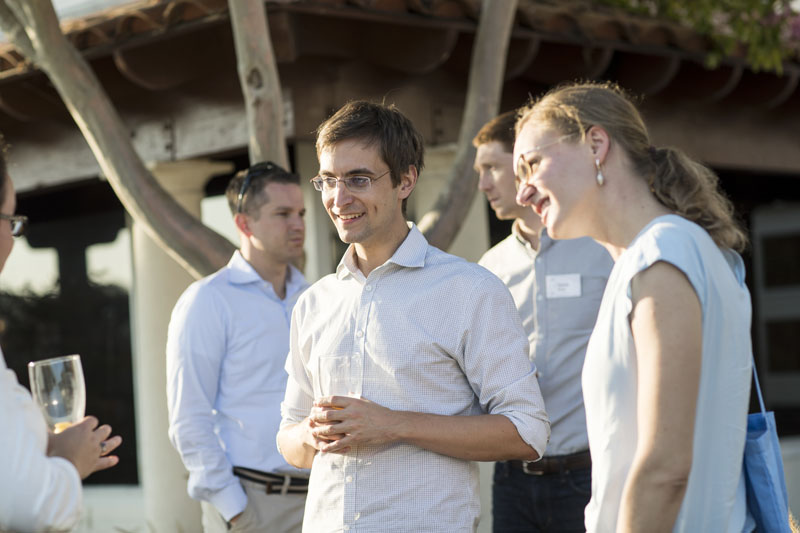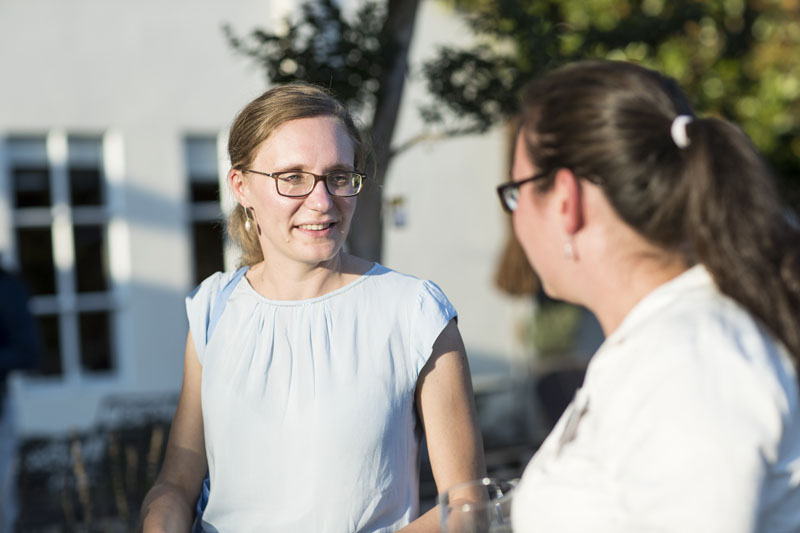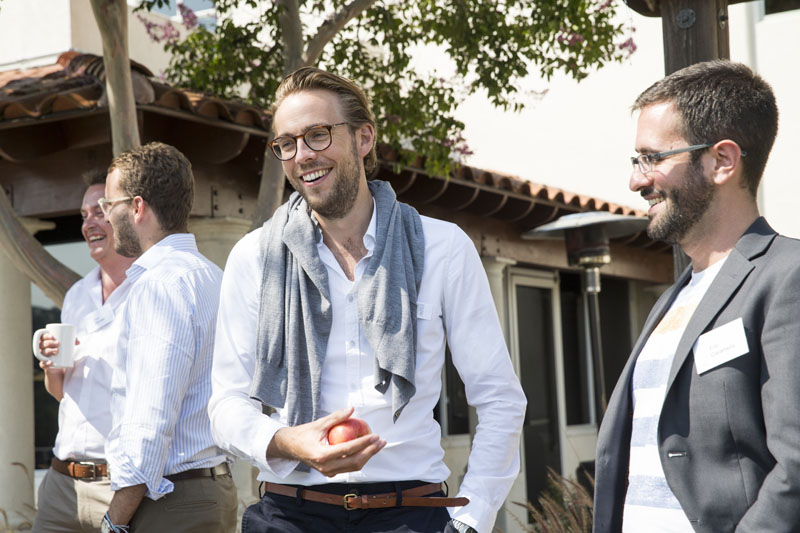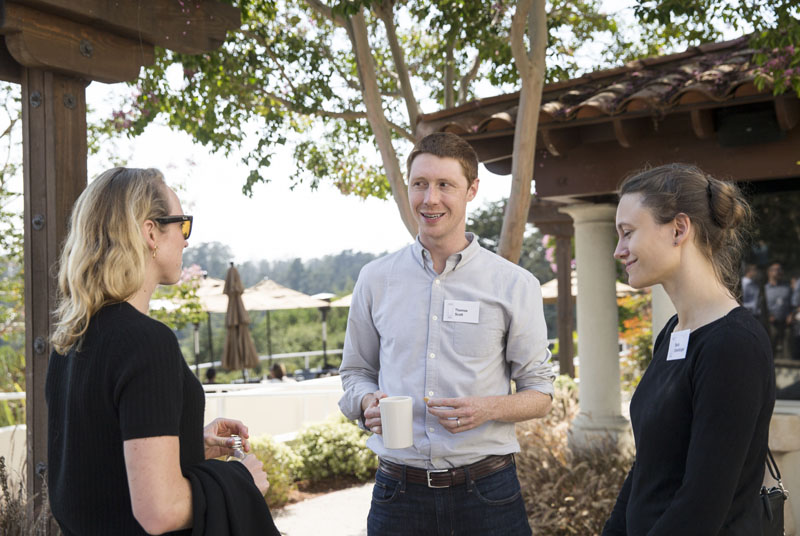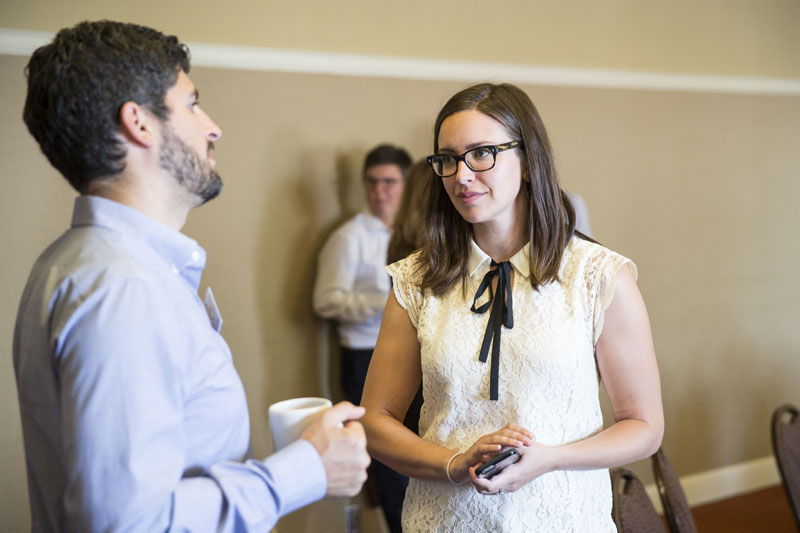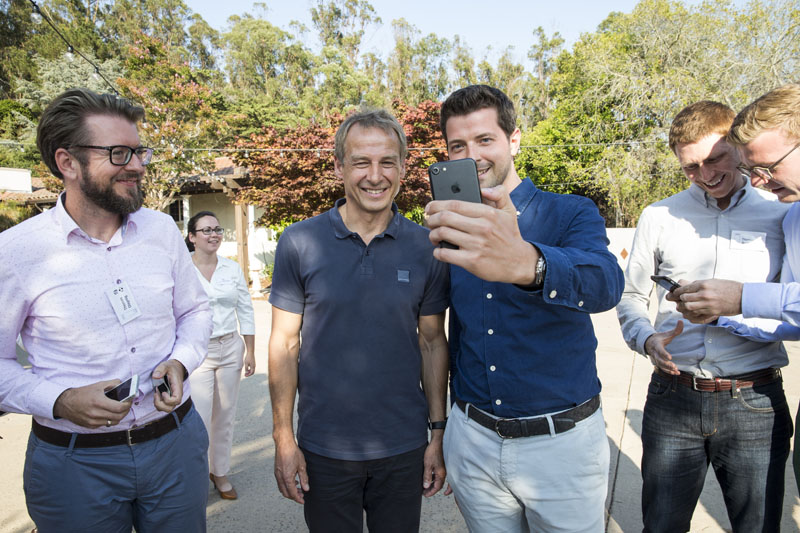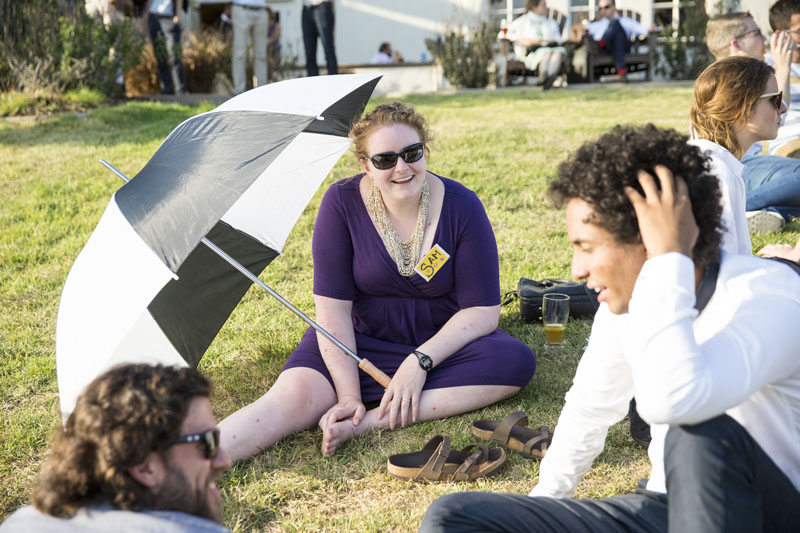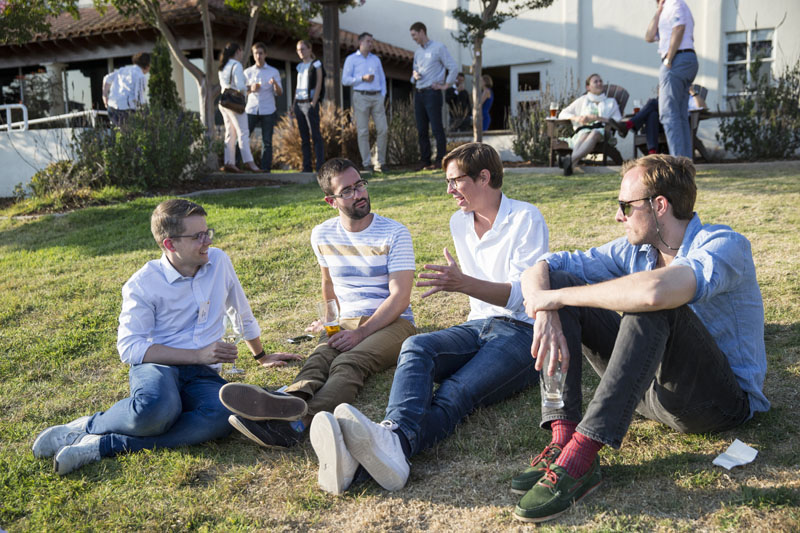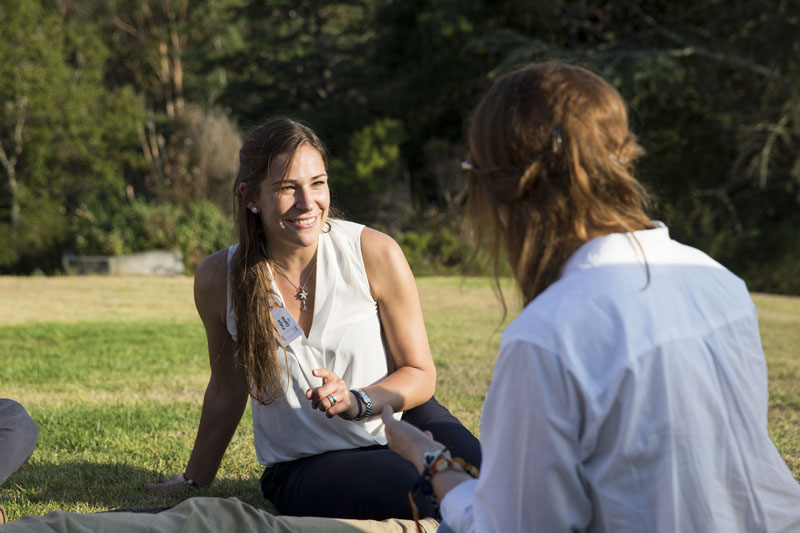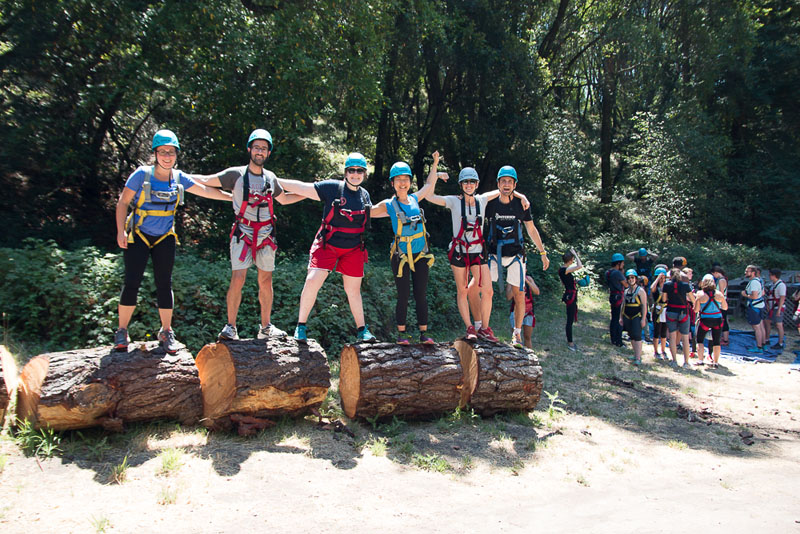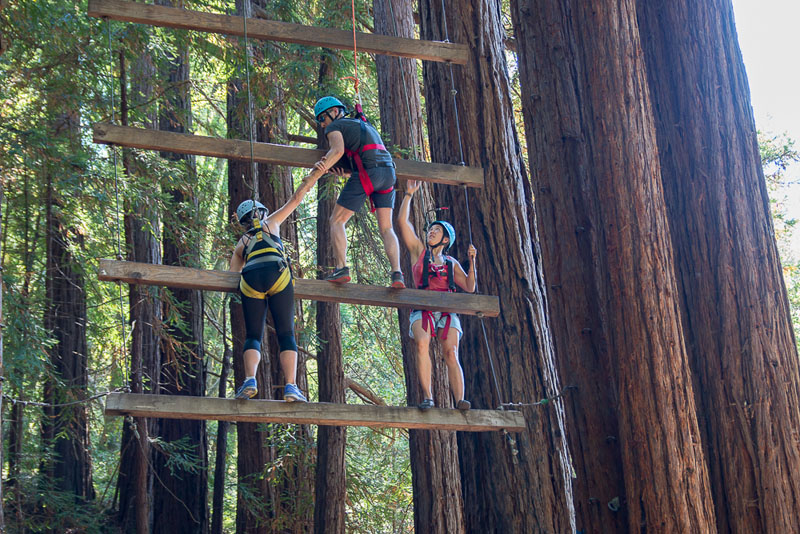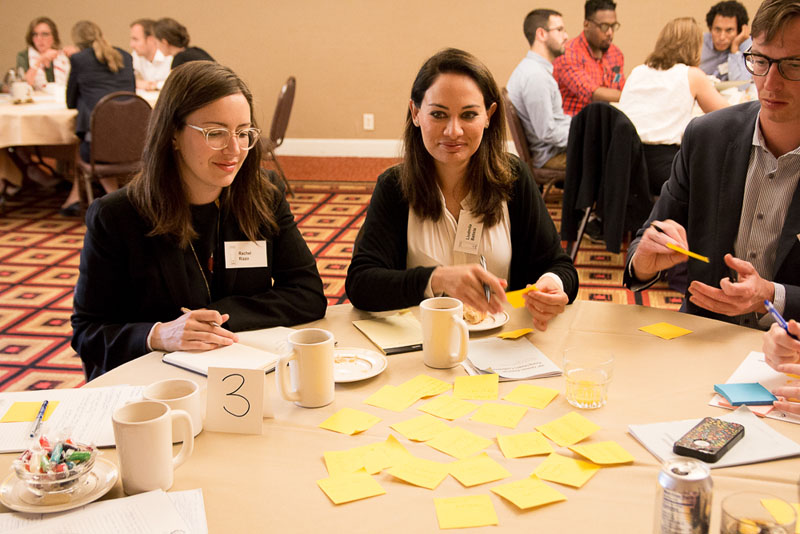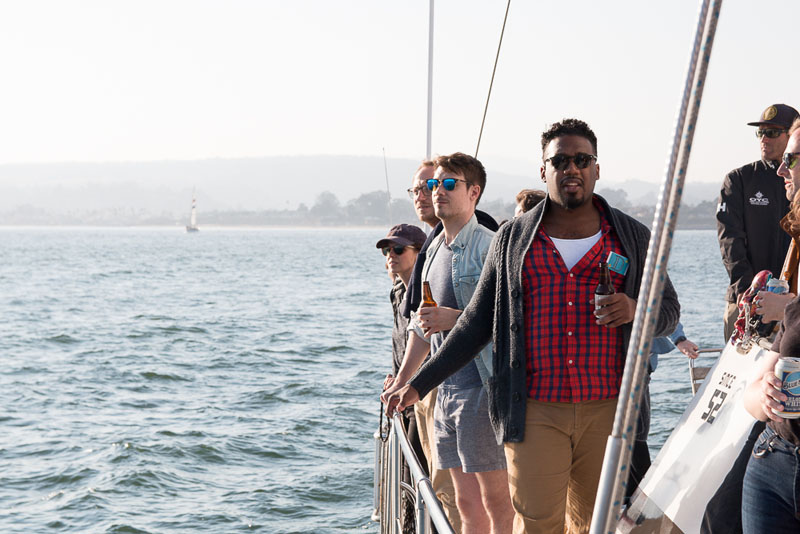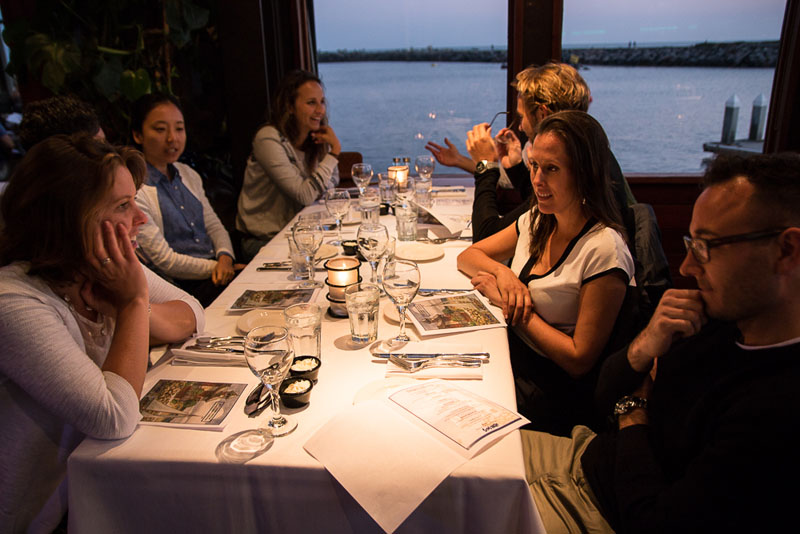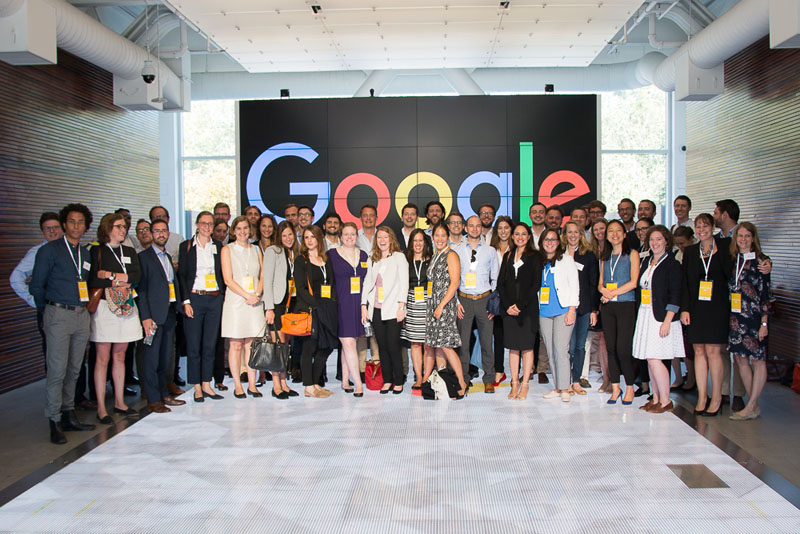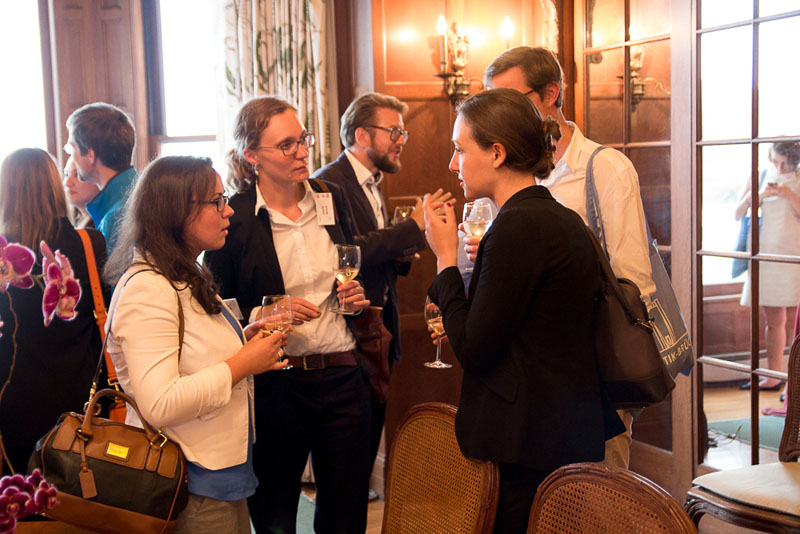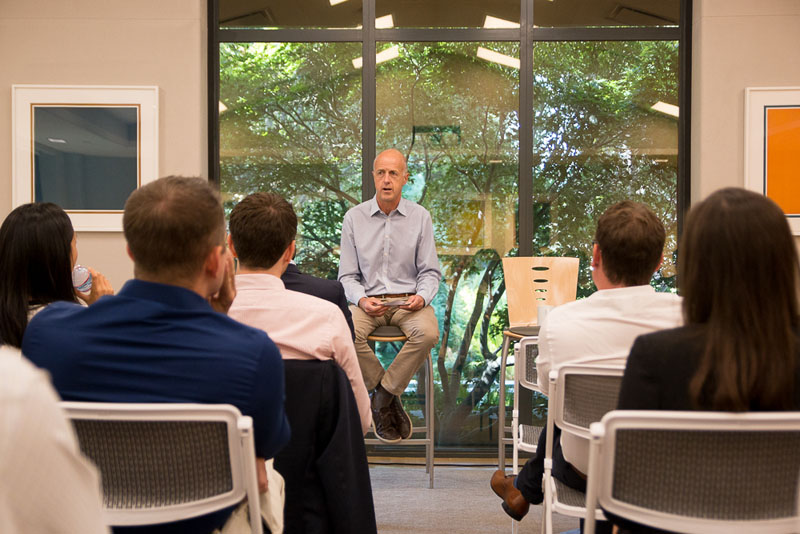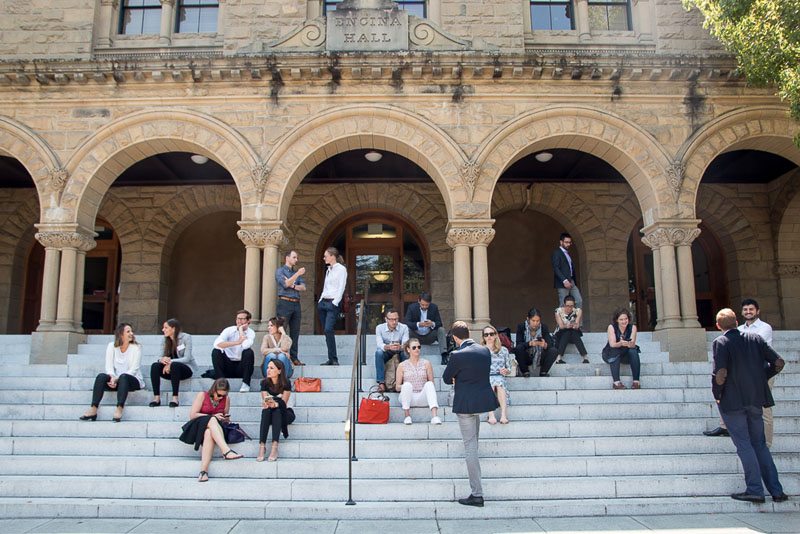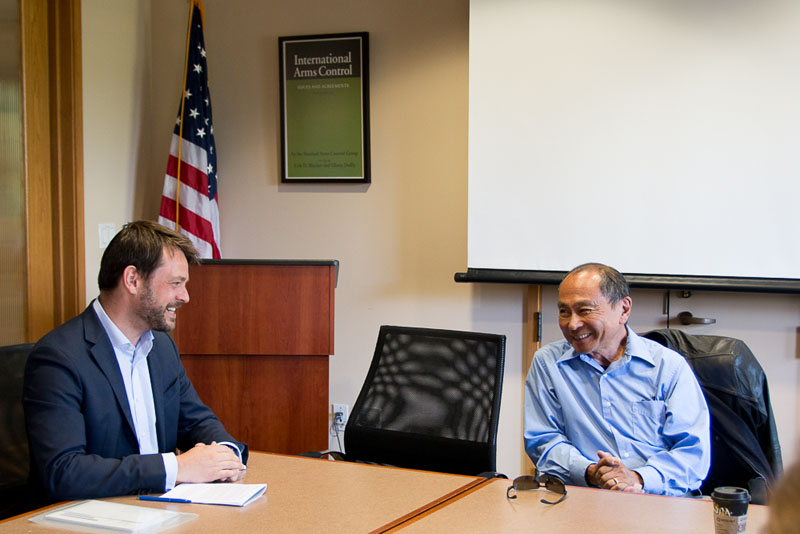Delegation Trip to San Francisco and Silicon Valley
San Francisco was at the heart of this spring’s Atlantik-Brücke delegation trip to the USA. Located in the Bay Area to the North of Silicon Valley, San Francisco has become a rival to traditional tech boom-centers like Palo Alto, Cupertino, and Menlo Park. Many of the young employees working in the Valley’s tech businesses prefer the vivid city life and accept long commutes to work. Prominent companies like Airbnb, Twitter, Uber, and Dropbox chose to open their headquarters in the heart of the city. The trip allowed our delegation to experience the city’s entrepreneurial spirit first hand, learn more about venture capitalists’ calculations, and meet representatives of numerous renowned companies.
On the first day, John O’Farrell, partner at Andreessen Horowitz, a company specializing in venture capital, revealed the seven secrets to success in the Bay Area. One of the central infrastructural prerequisites contemporary founders are able to draw on is the long tradition of successful tech-innovations in the area, which began with the founding of Hewlett-Packard seven decades ago. The universities located in the Bay Area are an essential success factor, as well, given the fact that they do not only produce excellent developers but also promote entrepreneurial spirit. The large number of start-ups located in the area play an important role, too: they foster mutual support and inspiration. Large companies such as Google and Facebook do not only serve as role models but are also “targets” of the smaller start-ups, which are much more flexible in their operations. Venture capital firms located in Silicon Valley are a financial source for the funding of brilliant ideas, and the Bay Area’s high standard of living attracts the best tech talents. Offering a comparison to the gold-rush of 1849, O’Farrell also emphasized the appetite for risk-taking shaping the Valley.
The delegations meetings with SV Angel‘s Robert Pollak and eVentures’ Mathias Schillingfurther emphasized that venture capital relies on different strategies when it comes to investments in promising start-ups. Personal contact to the founders plays an important role for all venture capitalists, but statistical analyses of successful business strategies also matter. In the end, however, good fortune plays a key role in success as well.
Tom Gillis, founder of the cloud computing company Bracket, does not only embody risk-taking propensity but also the willingness to overcome failure. Gillis talked to our delegation about the failure of his first venture and the tenacity it took to successfully build his current company. Former employees of Palantir founded the start-up BlendLabs and offered our delegation insights into how this young company is planning to simplify the application process for mortgages for both customers/clients and banks. A visit to BlendLabs’ office spaces revealed a lot about the everyday work of a young tech-company: a ping-pong table and a great variety of snacks were an integral part of the office equipment. The Airbnb headquarters offered a large variety of food and drink choices for their employees, as well, and creativity played a central role in the decoration and creation of the headquarter’s office spaces. During their visit, the delegation learned more about Airbnb’s business model, a platform for listing and booking accommodations with more than 2 million listings worldwide.
Maria Amundson of the communications and marketing company Edelman shed light on the downside of the tech boom in San Francisco: The high demand for housing has caused rents to skyrocket (the average monthly costs for a 1-bedroom-apartment are $3.500), and many of employees earning average wages are no longer able to afford living in the city. While the tech-founders donate large sums, these tend to benefit small groups with very particular/niche interests only.
The delegation trip’s itinerary also included a visit to the heart of Silicon Valley. The delegation visited the Facebook campus located in Menlo Park. Kevin Quirk talked about an initiative aiming at expanding internet access in areas without fiber optic cables, namely by using drones connected by laser beams. Kahina van Dyke further elaborated on another ambitious undertaking Facebook is pursuing: a peer-to-peer payment feature on the platform/Messenger. The delegation was able to observe the young founders at work at Plug & Play in Sunnyvale. A panel with German “Expatriates” offered insights into the factors pulling German founders into the Silicon Valley (apart from the quality of life, the proximity to American business partners is an important aspect) as well as an explanation of why Germany has not yet been able to create its own Silicon Valley (flexibility, openness for cooperation and a greater willingness to take risks). Arwed Niestroj, the head of the Mercedes Benz Research and Development in Sunnyvale, highlighted that well-established companies such as Mercedes benefit from the creativity in the Valley. Especially “automated driving” is an important topic for car manufacturers.
The delegation’s visit to a vineyard and Napa Valley and a ferry ride to Sausalito offered our participants a glimpse into why so many young tech talents move to the Bay Area: a beautiful landscape and Mediterranean climate.

